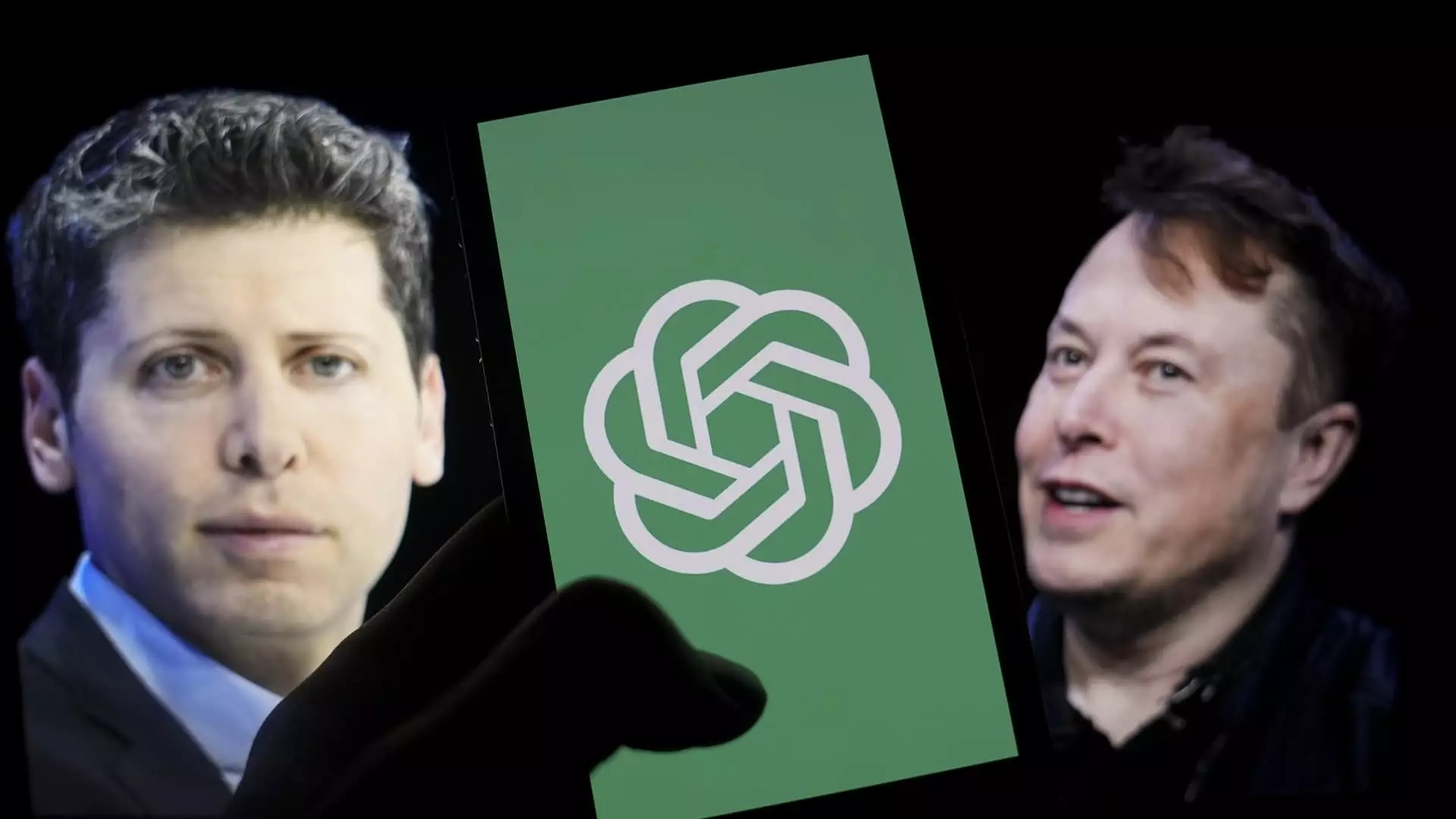In an era where artificial intelligence (AI) continues to revolutionize various sectors, the chatbot giant OpenAI finds itself on the precipice of significant political and legal controversy. Elon Musk, one of the notable figures in the tech industry, is spearheading a legal campaign against OpenAI’s transformation into a fully for-profit entity. The ongoing court battle brings to light not just Musk’s concerns but also the implications for the AI landscape at large.
Elon Musk is no stranger to the complexities of the technology space, and his latest maneuver involves requesting a federal court to halt OpenAI’s transition from a capped-profit model to an entirely for-profit structure. Musk’s contention, bolstered by his AI startup xAI and former OpenAI board member Shivon Zilis, centers on the assertion that OpenAI’s shift not only undermines its founding principles but also creates a hostile environment for competitors. The repercussions of OpenAI’s corporate transition could shape the funding dynamics for emerging AI firms, potentially stifling innovation and narrowing competition.
In the legal filings presented, Musk and his team argue for a preliminary injunction that seeks to prevent OpenAI from allegedly coercing its investors into refraining from funding rival enterprises, such as Musk’s xAI. This legal action, escalating the ongoing feud between Musk, OpenAI, and its CEO Sam Altman, highlights a contentious battle over the future of AI as Musk attempts to disrupt OpenAI’s seemingly unchecked corporate ambitions.
The legal arguments are steeped in complexity, with Musk’s attorneys invoking federal racketeering laws, exploring potential violations of antitrust regulations, and claiming that OpenAI and Microsoft have colluded to thwart competition. The seriousness of Musk’s claims is underscored by his previous attempts to tackle OpenAI in state court before refiling on a federal level, indicating a careful strategic approach to his legal confrontation.
Particularly alarming for Musk and his legal team is the allegation that OpenAI is benefiting from “wrongfully obtained competitively sensitive information.” This brings into question the ethical practices of corporate governance in the rapidly evolving AI sector. The implications of these arguments extend beyond Musk himself, raising significant concerns on how consolidation among tech giants might limit opportunities for smaller competitors.
OpenAI’s partnerships, particularly its deep ties with Microsoft, further complicate the narrative. Microsoft has poured billions into OpenAI, which accentuates the power dynamics in play. Critics of this arrangement fear that such corporate entanglement could lead to a monopolistic environment where innovative startups are systematically excluded from the market. The legal team representing Musk has characterized OpenAI as a “Frankenstein”—a conglomerate erratically stitched together simply to serve corporate interests rather than the broader objective of fostering ethical and beneficial AI development.
With the Federal Trade Commission (FTC) keenly observing the intertwining relationships between AI developers and significant cloud service providers, questions about regulatory oversight and fairness in the competitive ecosystem are coming to the fore. The FTC’s announced inquiry into market practices involving these entities adds additional layers of scrutiny, indicating potential consequences for larger players in the AI arena.
Since Musk launched his startup xAI in July 2023, the company has made strides to establish its presence in the AI market. As Musk’s legal endeavors unfold, the outcome could either bolster competition in the industry or inadvertently grant OpenAI greater freedom to monopolize the market. Musk’s assertions regarding a “group boycott” point to a troubling potential reality where access to capital becomes exclusive, undermining the opportunities for start-ups aspiring to innovate in the AI domain.
OpenAI has gained immense popularity since the launch of ChatGPT, and its current valuation underscores investor confidence in its capabilities. Yet, as the market continues to grow—expected to top $1 trillion in revenue within the next decade—it becomes increasingly crucial for stakeholders to balance ambition with ethical responsibility.
The unfolding dispute between Musk and OpenAI encapsulates far more than a legal disagreement; it raises essential questions about the direction of AI innovation, competition, and ethical corporate behavior. As the framework within which these companies operate continues to evolve, the future of AI development remains uncertain. Musk’s legal challenges against OpenAI could either catalyze a shift towards a more equitable technological landscape or exacerbate the existing barriers to entry for potential challengers. In the rapidly changing world of AI, the resolution of this legal saga will carry significant ramifications, impact future investment strategies, and shape the very essence of competition in this burgeoning industry.

